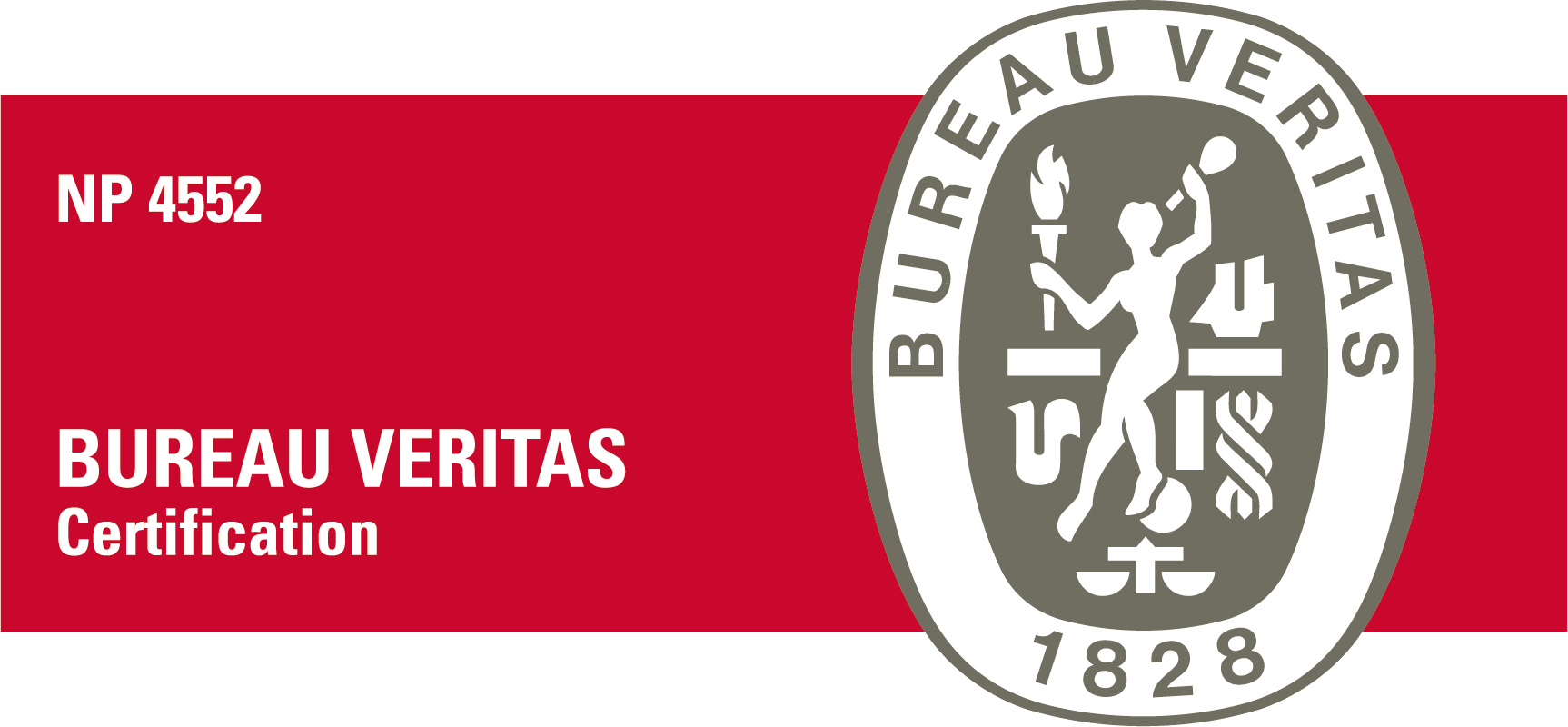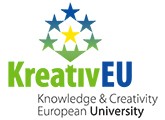Smart Cities Research Center
Projects
EcoModZHC (CENTRO-01-0145-FEDER-179932)
 |
Title: Circular Economy of Water and Materials through Modular Constructed Wetlands Partners: CIMT, NERSANT, Ambidustri, Palser, Pegop, petMaxi, SLD Researchers: Henrique Pinho, Manuel Barros, Carlos Ferreira, Pedro Granchinho, Dina Mateus, Isabel Silva, Pedro Neves, Simão Lopes Date: 2022-07-01 - 2023-07-30 Status: ongoing url: website |
| Description: The EcoModZHC project consists of a Proof of Concept, in which it is intended to implement a prototype of a Constructed Wetland to demonstrate the effectiveness of urban and industrial wastewater recovery through modular systems, promoting the circular economy of water and solid waste and by-products, and to promote this greener and more sustainable technology for wastewater treatment. The prototype to be built, installed and operated, will include two innovative features in this type of wastewater treatment installation: (i) Remote, constant and real-time monitoring of the operation of the installation and the performance and quality parameters of the potable water; (ii) The energy autonomy of the installation, through renewable energy systems. | |
OMRisk (UIDB/05567/2020/04)
 |
Title: OMRisk – Optical sensor for microbiological risk evaluation Partners: NA Researchers: Rui Gonçalves, Henrique Pinho, José Casimiro Pereira, Manuel Barros, Paulo Coelho, Pedro Correia, Sandra Jardim, Luís Oliveira, Dina Mateus, Luís Almeida Date: 2022-06-01 - 2023-06-02 Status: ongoing url: |
| Description: The main objective of this project is the development and application of an image acquisition system for identification of pathogenic microorganisms in real-time mode (or almost real-time). The system comprises an optical system and digital sensor aimed to images acquisition in the visible, ultraviolet and near infrared bands with the expected quality that will be able to feed an automatic image classification framework. The project includes the development of image processing and analyses tools for image enhancement and fine tuning of the acquisition kit, the definition of the image database and related metadata and also the development of a framework for image labelling and dataset creation for enabling supervised learning algorithms. | |
Solar (UIDB/05567/2020/05)
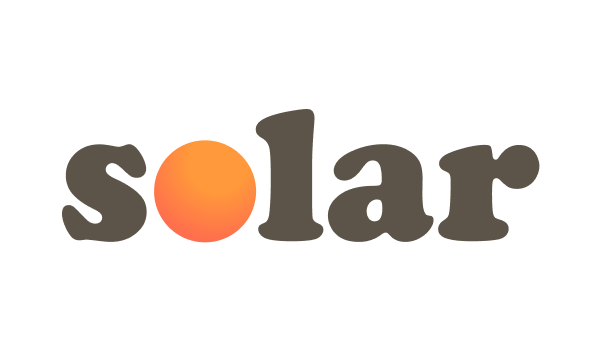 |
Title: Prediction and detection of sunlight entering through transparent building surfaces Partners: NA Researchers: Diogo Chambel Lopes, Isabel Nogueira Date: 2022-05-29 - 2023-07-30 Status: ongoing url: |
| Description: Solar is a project that aims to develop a software to receive the necessary data and produce the desired results in terms of sunlight availability inside buildings. The presence of sunlight over time can be predicted using variables such as latitude and longitude, the configuration of windows, balconies and other surfaces of sunlight entry, and a survey of the surrounding obstacles. Its goal is to develop an image processing algorithm that can determine the blocked and unblocked areas for each combination of azimuth and elevation coordinates and generate the desired solar exposure data for new construction or solar exposure analysis of existing buildings. It is hoped that procedures for assessing the thermal quality of buildings will be added at a later stage, with the goal of more efficient energy use. | |
MoSBurn (UIDB/05567/2020/03)
 |
Title: Modeling the multifactorial burnout syndrome in college students Partners: Center for Research and Innovation in Business Sciences and Information Systems, Instituto Politécnico do Porto, Center for Collaborative Studies in Mathematical Biology (Illinois State University) Researchers: Luís M. Grilo, Maria Cristina Costa, Aldina Correia, Anuj Mubayi Date: 2022-05-01 - 2023-06-30 Status: ongoing url: |
| Description: The MoSBurn project aims to model the Burnout (considering the three dimensions: exhaustion, cynicism and effectiveness) of college students based on a quantitative study that includes questionnaires with internationally validated scales. Burnout is a state of emotional, mental and physical exhaustion caused by excessive and prolonged stress (distress), which has a detrimental effect on students’ academic performance and can ultimately lead to dropout. Recently, this problem seems to have increased due to the pandemic of COVID-19, which is a major concern for universities. By applying the Structural Equation Modeling, it is expected to estimate a model that allows identifying which (in)direct effects are statistically significant regarding burnout of college students, considering optimism and distress as potential predictors. Understanding the results may help suggest some intervention to improve student performance and help universities in their mission to provide well-being and quality education to their students. | |
Cognition (UIDB/05567/2020/01)
 |
Title: Driver’s Behavior Cognition Based on Mobile Phone Sensors Partners: Instituto Politécnico de Leiria, Igor Sikorsky Kyiv Polytechnic Institute Researchers: João Patrício, Carlos Ferreira, Carlos Rabadão, Eugénio Pina de Almeida, Iryna Husyeva, Oleksandr Koval, Oleksandr Sarafannikov, Paulo Costa, Paulo Loureiro, Sandra Jardim, Sílvio Mendes Date: 2021-06-01 - 2023-06-30 Status: ongoing url: |
| Description: COGNITION aims to develop a software solution for early recognition of abnormal and inattentive driving in order to prevent road accidents and increase traffic safety. More specifically, the aim of this project is to develop an application which gathers data from mobile phone sensors, processes it and warns the driver about potentially dangerous situations. It is intended that the project culminates in the provision of a valuable service in the area of traffic safety. Moreover, if driving behavior such as inattention and drunk driving can be detected and prevented in a timely manner, most road traffic accidents can be prevented. In addition, vehicle dynamics and driving behavior can also be applied to crowd detection to help traffic planners analyze traffic conditions and make correct decisions. | |
GePISCal (UIDB/05567/2020)
 |
Title: General Purpose Image Similarity Calculation for Heterogeneous Applications Partners: Instituto Politécnico de Leiria, Igor Sikorsky Kyiv Polytechnic Institute Researchers: Sandra Jardim, Carlos Mora, Eugénio Pina de Almeida, João Patrício, José Casimiro Pereira Date: 2021-06-01 - 2023-06-30 Status: ongoing url: YouTube |
| Description: GePISCal is a digital image processing project, where the main research is done in the image segmentation, image features extraction, object extraction and classification, and image interpretation areas. It aims the development of an effective and reliable automatic solution for graphic research/surveillance, through the direct confrontation of the graphic elements existing in the images to be compared, without any human intervention in pre- or post-research screening of the images obtained. Through the design and implementation of image analysis algorithms, based on machine and deep learning models and techniques, it is intended to model the human perception of images, and overcome some of the limitations of currently existing Content Based Image Retrieval (CBIR) systems. It is intended that the system resulting from this project be usable in a real context, in which the databases have dimensions in the order of millions of images, and continuous growth. | |
BREUCA (POCI-01-0247-FEDER-048257)
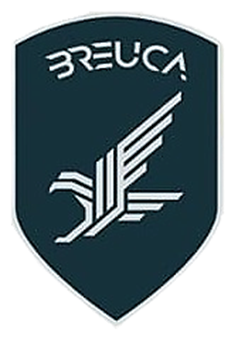 |
Title: Development of a high-precision Virtual Reality simulator designed to be used in professional simulation and gaming environments associated with real events Partners: Universidade do Minho, Bubblecode, Altice, Formula E, Kartódromo Internacional de Braga Researchers: Sandra Jardim, António Manso, Carlos Mora, Helena Monteiro, João Patrício, Luís Merca, Manuela Fernandes, Ricardo Campos, Sérgio Rodrigues Date: 2021-01-01 - 2023-06-30 Status: ongoing url: website / YouTube |
| Description: The BREUCA project aims to develop a high-precision Virtual Reality simulator designed to be used in a gaming environment that will allow its users to compete in real-time races against racers on the track, immersing them in an environment as real as possible, that is, effectively happening anywhere in the world, and virtually in any user’s home. It is intended that changes in the real car or events of the race reverberate in an event in a virtual environment, with an error of less than 0.1 seconds. In terms of technical-scientific development, it is a project that covers three vital points of technological development: virtual reality, precision simulation, real-time game with the cars on the track. | |
CRASH (POCI-01-0247-FEDER-070315)
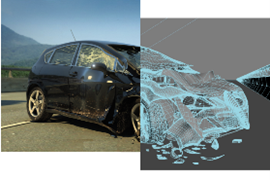 |
Title: Development of a high precision reconstruction system designed to be used in a professional simulation environment related with real crash events Partners: Instituto Politécnico de Leiria, Igor Sikorsky Kyiv Polytechnic Institute Researchers: Sandra Jardim, António Manso, Carlos Mora, João Patrício, Luís Ferreira, Luís Merca, Sérgio Rodrigues Date: 2021-01-01 - 2023-06-30 Status: ongoing url: website / YouTube |
| Description: The CRASH project aims the research in the area of Data Science, 3D Simulation, Artificial Intelligence and Software Engineering, proposing the development of a fully functional prototype that provides a high-precision virtual reconstruction, description and diagnosis of the causes of road accidents. The project envisages the development of a 3D scanning system for vehicles, with a precise definition of the deformations suffered during an accident, and the development of an accident scene simulation system, with the identification of all forensic evidence of accidents and their measurement definition. The implementation of artificial intelligence models will provide the system with the ability to relate 3D objects and evidence from other sources of information (sensors), allowing the reconstruction of the entire timeline of the accident, combining data and relevant 3D objects, and making it possible to include at any time in the timeline mechanical and dynamic models of relevant vehicles, related to any type of 3D object. Accident reconstruction will be based on the definition of mechanical equations of kinematic and dynamic behavior of physical models resulting from 3D digitization. It is also foreseen the integration of the information registered in the vehicles to feed the dynamic behavior of the vehicle and the behavior of the driver. | |
Dragonfly (UIDP/05567/2020/02)
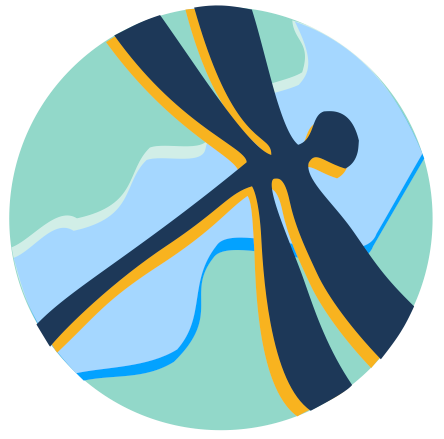 |
Title: Implementation of a mobile robotic surface water quality monitoring system Partners: CIMT Researchers: Manuel Barros, Carlos Ferreira, Pedro Granchinho, Pedro Neves, Hugo Magalhães, Henrique Pinho Date: 2020-06-01 - 2023-06-30 Status: ongoing url: YouTube |
| Description: The aim of the Dragonfly project is to implement enabling technologies for the deployment, and management of a cost-effective mobile remote sensing framework (or cyber physical system) for monitoring freshwater quality towards water reservoirs protection against pollution. The module is composed of several sub-systems optimized for the collection of relevant water quality data and its transmission in real time to a central monitoring and control unit. The data will make it possible to identify sources of contamination and its evolution, being, therefore, a decision-making tool to trigger environmental protection mechanisms and lead to the rapid identification of the origins of the problem(s) and their respective resolution. | |
H2-REnWaste (UIDP/05567/2020/01)
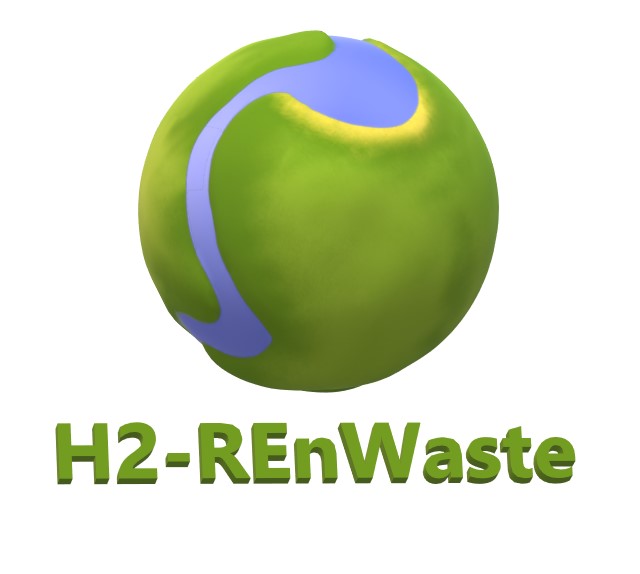 |
Title: Production of Hydrogen with Renewable Energy using Wastewater Partners: CIMT Researchers: Paulo Coelho, Mário Gomes, Henrique Pinho, José Fernandes, Valentim Nunes, Marco Cartaxo, Carlos Pereira Date: 2020-06-01 - 2023-06-30 Status: ongoing url: YouTube |
| Description: The H2-REnWast project will install an electrolyser at the IPT campus. In order to explore the potential of producing Green Hydrogen, the electrolyser will be integrated with the IPT solar farm (photovoltaic - PV), hydrogen storage and a small fuel cell for re-electrification. For this purpose, in addition to using energy from renewable sources (Green H2), in order to make the process even “Greener”, and so as to maximise relevance, wastewater will be used in the hydrogen production process. Thus, the treatment of wastewater is necessary to achieve high hydrogen purity and efficiency of process. The plant will be operated in multiple emulated configurations (energy storage, microgrid, fuel production). Hydrogen is increasingly seen as a very important energy vector, both at European and national level. IPT is part of a working group created by the CIMT to turn the Médio Tejo into a “Hydrogen Region”. | |
SmartBASE (UIDB/05567/2020/00)
 |
Title: Backbone And Support Environment for Smart Projects Partners: NA Researchers: Luís M. L. Oliveira, Renato Panda, Pedro Correia, Paulo Coelho, Henrique Pinho Date: 2020-06-01 - 2023-06-30 Status: ongoing url: YouTube |
| Description: The project goal consists in the implementation of shared hardware and software resources available for all Ci2 projects and thematic areas. | |
SmarterCW (UIDP/05567/2020/03)
 |
Title: Smart monitoring of constructed wetlands and other green wastewater treatment technologies to improve efficiency and water quality Partners: NA Researchers: Henrique Pinho, Luís M. L. Oliveira, Manuel Barros, Carlos Ferreira, Dina Mateus Date: 2020-06-01 - 2023-06-30 Status: ongoing url: YouTube |
|
Description: The project aims the create a framework to provide the monitoring of biological wastewater treatment processes through the gathering of continuous data from remote water and environmental sensors. The acquired data can be processed and analysed through data analytics tools to provide a better understanding of the complex and coupled phenomena underneath wastewater treatment. The results will allow for improving the efficiency and control of green wastewater treatment technologies. |
|
B-RELIABLE (SAICT/30935/2017)
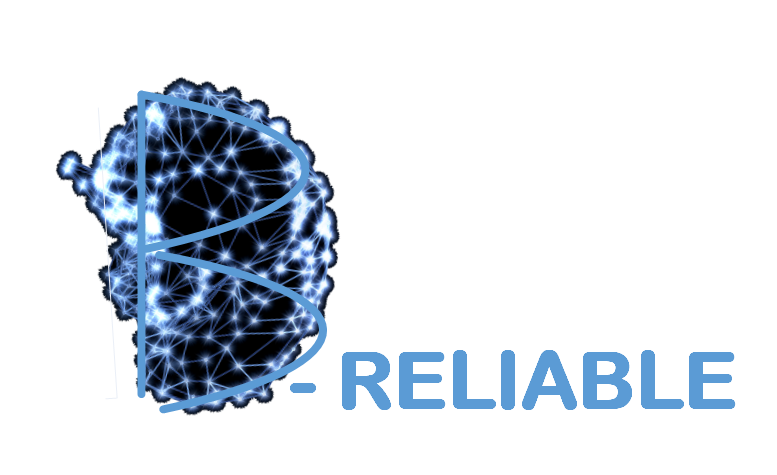 |
Title: Boosting reliability and interaction on brain-machine interface systems integrating automatic error-detection Partners: ISR, ICNAS, IPT Researchers: Gabriel Pereira Pires, Ana C. Lopes, Miguel Castelo-Branco, Urbano J. Nunes, João Paulo, Aniana Brito, M. Simões Date: 2018-06-20 - 2021-06-19 Status: completed url: project sheet / website |
| Description: Research & Development of new methods, theoretical and computational models and respective experimental validation, in human-centered systems, using brain-machine/computer interfaces (BMI/BCI). | |
INFANTE (CENTRO-01-0246-FEDER-000017)
 |
Title: Precursor for microsatellite constellations for maritime applications Partners: AST, GMV, HPS, Omnidea, Spin.Works, CEIIA, FCT-UNL, FEUP, INL, IPN, ISEP, ISQ, ISR Lisboa, IT, UBI Researchers: Carlos Ferreira Date: 2017-11-01 - 2020-10-31 Status: completed url: project sheet / website |
| Description: The project INFANTE consists of a joint venture for the development and in-orbit demonstration of a microsatellite as a precursor to a satellite constellation for maritime surveillance, Earth observation and communications between satellites and ground stations. The project is led by the company TEKEVER, but brings together other Portuguese companies (such as Active Space Technologies, GMV, HPS, Omnidea and Spinwork), reference R&D units such as CEIIA, FCT-UNL, FEUP, INL, IPN, ISEP, ISQ, ISR Lisboa, IT Aveiro and UBI, and also international organizations such as the Innovation Academy for Microsatellites from the Chinese Science Academy. | |
MOVTOUR (POCI-01-0145-FEDER-024068)
 |
Title: Turismo Culture with and for Society Partners: IPT, IPS, CES Researchers: Nuno Madeira, Luís M. L. Oliveira, Luís M. Grilo, Luís Mota Date: 2017-10-02 - 2019-04-02 Status: completed url: project sheet / website |
| Description: The project MovTour aims at contributing to the increase of scientific knowledge in the field of heritage enhancement as a tourism resource, by developing a model that allows for an integrated management of Cultural Heritage, Tourism and TIC. Moreover, it will include the local communities in the co-creation process. It also intends to have a real impact on land qualification, its people and its organizations. Due to the existing territorial framework, the need for more tourist culture knowledge is evident so as to value tourism fruition and heritage preservation. Something that is now scarce. Hence, the use of monitoring and real-time assessment technologies is relevant in determining the usage of cultural heritage in tourism terms. The interconnection between all the project’s parts becomes clear in the implementation of its five activities and multiple tasks which are all supported by a strong technological component: wi-fi detection, bplace solution, APP and Analytics solution. | |
VITASENIOR-MT (CENTRO-01-0145-FEDER-023659)
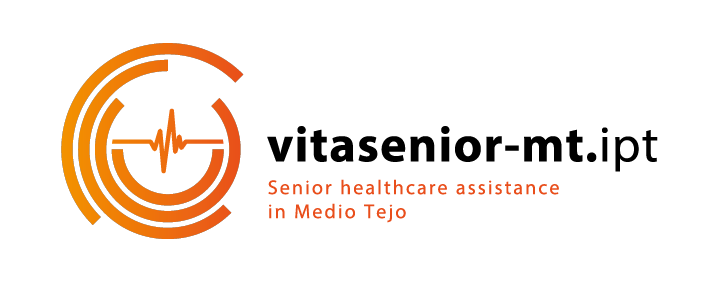 |
Title: Senior healthcare assistance in Medio Tejo Partners: IPT, IPC, CIMT Researchers: Gabriel Pereira Pires, Ana C. Lopes, António Manso, Luís A. Almeida, Luís M. L. Oliveira, Pedro Correia, Renato Panda, Diogo Mendes, Dário Jorge, Pedro Dias, Telmo Pereira, Tatiana Costa, Paulo Monteiro, Carla Grácio Date: 2017-09-27 - 2019-09-28 Status: completed url: project sheet / website |
| Description: The VITASENIOR-MT project aims to develop a telehealth solution to improve the health care of elderly people living alone in the region of Médio Tejo. This solution will do remote and local monitoring of biometric parameters of the elderly, as well as environmental parameters of their homes. The biometric variables include heart rate and temperature measurements collected automatically, by means of a bracelet, throughout the day. Blood pressure and blood glucose values will be measured by the senior’s own initiative. The environmental parameters include carbon monoxide and carbon dioxide measurements. A television channel with easy interaction allows the elderly to access biometric data, and automatically receive medical warnings and recommendations (based on biometric protocol and user profile). All data will also be available through Internet browser. In alarm situations, an automatic operational procedure will be triggered establishing communication to predefined entities. | |
LIBÉLULA (CENTRO-01-0145-FEDER-024052)
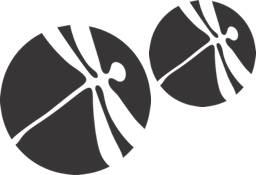 |
Title: A Mobile robotic surface water quality monitoring system Partners: IPT, IPL, CIMT Researchers: Pedro Granchinho, Manuel Barros, Carlos Ferreira, Henrique Pinho Date: 2017-09-25 - 2019-03-27 Status: completed url: project sheet |
| Description: The LIBÉLULA project aims to solve the need for monitoring span of surface water quality information in freshwater natural and artificial systems. Each mobile and robotic monitoring system units (LIBÉLULA) is made up of several sub-systems for the collection of relevant water quality data and their transmission in real time to a central monitoring unit. The data will make it possible to identify contamination (pollution) sources, functioning as a decision-making tool to trigger the necessary environmental protection mechanisms. | |
MOVIDA (CENTRO-01-0145-FEDER-023878)
 |
Title: MOVIDA: Physical Activity Monitoring Platform Partners: IPL, IPT, IPCB, CHLeiria, CMLeiria Researchers: Pedro Correia, Luís M. L. Oliveira, Rui Pinto Date: 2017-09-19 - 2019-03-20 Status: completed url: project sheet / website |
| Description: Chronic diseases prevention and management joint with rehabilitation programs establishes a true challenge to the health care community. Epidemiological studies point to an increased prevalence of cardiovascular and chronic diseases, and specifies the supervised physical activity as a strong tool to control the progression thereof. This project will create a global health community program, centered in a platform with a mobile App and a dashboard, aimed to monitor physical activity, being divided into 4 main modules, targeting several branches of the population. This program enables exercise prescription and monitor user’s performance and adherence, in metabolic diseases patients by (MOVIDA.cronos), to draw and follow a cardiac rehabilitation program (MOVIDA.eros), to track and quantify indoor movements (MOVIDA.domus), and also to access to a stratified training circuit, for maintain or improve fitness level (MOVIDA.polis). The project enrolls three academic partners and included research institutes, but also health and community stakeholders.. Students from engineering and health sciences will be integrated in the project, benefiting of this interdisciplinary environment. | |
EXOBIKE (CENTRO-01-0145-FEDER-24013)
 |
Title: Biomechanical Equipment for Restorative Therapy and Reabilitation Partners: IPC, IPT, ROVISCO PAIS, CASPAE 10 Researchers: Gabriel Pereira Pires, Luís Roseiro Date: 2017-09-18 - 2019-09-19 Status: completed url: project sheet / website |
| Description: The recent growth in the use of inertial sensors and their applicability in areas such as health, sports, navigation systems and aircraft / aerospace engineering is a phenomenon that can have significant impacts on the use of this technology. In addition to the low cost, small size and low power consumption, the inertial sensors have the ability to measure the intensity of physical quantities of a moving object without the need for external references. In the health area, particularly in monitoring, this type of sensor, has been under investigation in situations of support for physical rehabilitation and monitoring of the mobility of Parkinson’s and Alzheimer’s patients. The effectiveness of these sensors depends on the ability of the algorithms of gathering information from each of them and estimating more accurate information by sensor fusion algorithms. The fusion of inertial sensors data with other types of sensors such as force censors, allows devices to determine patients movement intentions. Moreover, the physical rehabilitation of patients that suffered accidents or traumatic actions frequently requires the use of physical structures to guide and sustain the required rehabilitation exercises. In these cases accurate motion and force controls are mandatory to prevent further injuries and allow patient rehabilitation. The proposed system enables the control of limb movements based on the sensor data and the patient intentions. The type and intensity of the training may be programmed by the medical staff that receives feedback from the wireless sensors. The patients receive a number of visual and physical stimulus generated by a virtual reality installation. | |
GEDITEC (POCI-01-0145-FEDER-023723)
 |
Title: Economic geography and territorial competitiveness: the error as learning factor and territorial innovation Partners: IPT, IPPortalegre, IPG, TagusValley Researchers: Sérgio Nunes, Luís M. Grilo, Ana Cláudia Pinto, Rita Anastácio, João Pedro da Luz, António Ventura Date: 2017-09-13 - 2019-03-15 Status: completed url: project sheet |
| Description: Main goals: To identify the main channels and mechanisms of territorial rooting of regional dynamics, in order to maximize the processes of locating companies and to minimize the disadvantages of relocation.In particular, it aims to study the Softinsa-IBM location process in IPT, in cooperation with the various local and regional actors (local government, IPT, business and industry associations, local development agencies, inter-community and community). | |
VALORBIO (POCI-01-0145-FEDER-23314)
 |
Title: Wastes valorisation through modular constructed wetlands for wastewater treatment Partners: IPT, IPC, IPPortalegre, Palser Researchers: Henrique Pinho, Isabel Nogueira, Marco Cartaxo, Valentim Nunes Date: 2017-07-17 - 2019-01-16 Status: completed url: project sheet |
| Description: The project VALORBIO aims to meet the need for treating and reusing wastewater and solid wastes from industries in the region, particularly from small and medium-sized industrial and agricultural activities. The project goals promote the involvement of industries in the social objective of protecting the environment and improving the quality of life of populations, in this case through a sustainable management of wastes and water resources. | |
AGA@4life (CENTRO-01-0145-FEDER-023369)
 |
Title: Comprehensive Geriatric approach to promote an active and healthy aging Partners: IPC, IPT, IPCB, CMLousã, ADIC Researchers: Gabriel Pereira Pires Date: 2017-03-18 - 2019-09-19 Status: completed url: project sheet |
| Description: Aging is a major societal challenge today. To match this cross-cutting issue to the various sectors of society, a project was designed aimed at promoting an active and healthy aging through the implementation of an intervention program based on the comprehensive geriatric assessment model (in Portuguese, Abordagem Geriátrica Ampla - AGA), also incorporating regional endogenous resources and the Health Sciences academia. The proposed AGA model is based on an individual, holistic and multidisciplinary assessment protocol, from which intervention strategies will be implemented, adjusted to each person?s needs, and aimed at preventing frailty and functional, cognitive and social decline of the elderly. Intervention actions will be focused on personalized exercise programs, nutritional education, cognitive stimulation, comorbidities monitoring, therapeutic counseling and global promotion of wellbeing. | |
HTPDIR (POCI-01-0247-FEDER-017644)
 |
Title: Human Tracking and Perception in Dynamic Immersive Rooms Partners: SketchPixel, IPT, UC Researchers: Gabriel Pereira Pires, Luís A. Almeida, Miguel Abreu Date: 2017-02-01 - 2021-01-31 Status: completed url: project sheet / website |
| Description: The potential of immersive reality systems and its broad range of application are well known. Despite the numerous systems available, there are currently no solutions that map static and dynamic obstacles in the physical space, and thereby users have to circulate in empty rooms or perform interaction with the immersive system in a very limited space. On the other hand, the tracking of the users restricts to the user’s head (or hands through the use of controllers), or when members and hands are also tracked, users need to stand in front of the RGB-D sensors -D (or other sensors) in a limited space. The motion tracking of the entire body in larger areas is usually solved using tags, with optical or radiofrequency modulation, placed at several points of the body, and using high frequency sensors to capture these tags. This leads to systems with low flexibility and extremely expensive. In this project it is proposed to develop a low cost system based on multiple RGB-D sensors (> = 4), providing simultaneously the tracking of the full body of the user at any point of the physical space (areas of tens of m ^ 2 ) considering unstructured and dynamic environments, gesture recognition for a more natural interaction with the immersive environment, as well as the interaction with the real world from the immersive world. This system finds a broad range of applications in many areas, namely, shopping area (real estate development, allowing to show final finishing/decoration in spaces), education (space simulation in classrooms, museums, showrooms), training in simulation (accident simulation, police training, social training). The possibility of adapting any space to a new dynamic virtual world, where the user can move within it, opens up a whole new range of solutions with a potential that can be exploited in several areas of activity. | |
SMART-MONITOR (P01395)
 |
Title: Development, implementation, characterization and deployment of an efficient power quality and quality of service measurement network in a smart city environment Partners: IT Researchers: Carlos Ferreira, Manuel Barros, Fernando Janeiro Date: 2016-12-01 - 2018-12-01 Status: completed url: website |
| Description: The SMART-MONITOR project includes the development, implementation, characterization and deployment of an efficient power quality and quality of service measurement network in a smart city environment. | |
AQUATROPOLIS (POCI-01-0247-FEDER-017888)
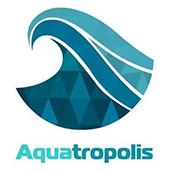 |
Title: Intelligent management system for sustainable aquacultures Partners: Compta, Domática, IPT, IPL, TagusValley, Algaplus Researchers: Pedro Granchinho, Manuel Barros, Carlos Ferreira Date: 2016-10-06 - 2018-08-31 Status: completed url: project sheet |
| Description: The main objective is to develop a disruptive solution for an intelligent, optimized and automated management of aquaculture operations, in order to promote the sustainable development of the aquaculture industry in the countries of the Atlantic region. Aquatropolis is in line with the principles advocated by the European strategy for Blue Growth, with the action plan for its implementation in the Atlantic Region, as well as with the Portuguese vision stated in the document “ENM”. The project is also lined up with the objectives of “European Digital Agenda”, supporting the principles of the Smart Cities on the mission to colonize in an efficient and sustainable way the 71% of the planet occupied by the ocean. More specifically, “Aquatropolis” will take advantage of a series of tools already available, namely: the Internet of Things (IoT), the “fog” computational systems available on the “cloud” (SaaS), the principles promoted by the “Sharing Economy Model” and technological innovation applied to precision monitoring instruments/sensors. | |
INDuGRID (ERANETLAC/0006/2014)
 |
Title: Efficient energy management in industrial microgrids with high penetration of PV technology Partners: NA Researchers: Mário Gomes, Paulo Coelho, Filipe Bandeiras Date: 2016-10-01 - 2019-12-31 Status: completed url: project sheet |
| Description: The INDuGRID project involves institutions from 4 countries (Portugal, Spain, Argentina and Peru), and is funded by the respective agencies of each country, being the IPT research team financed by FCT. The main objective of this project is the introduction of innovative solutions to the improvement of energy efficiency in industrial environments using intelligent electrical microgrids with high penetration of PV technology. | |
SMARTER FEST (NA)
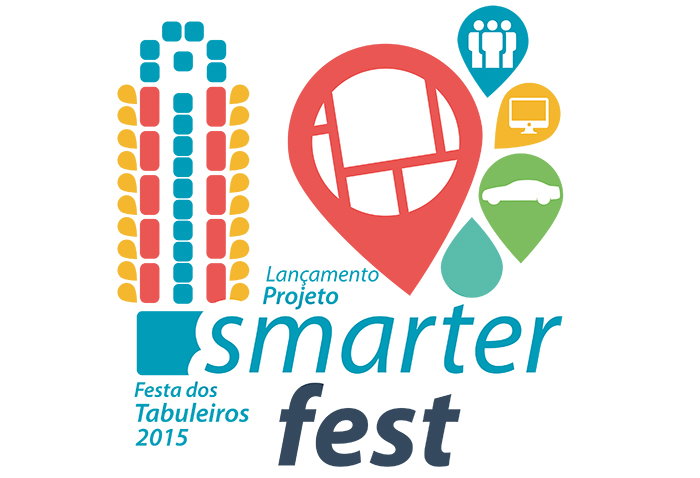 |
Title: Festa dos Tabuleiros 2015 Partners: NA Researchers: João Patrício, Luís M. L. Oliveira, Nuno Madeira Date: 2015-01-01 - 2015-06-01 Status: completed url: project sheet |
| Description: Applied research joint project with the Tomar municipality and IBM, to create a Smart City environment specifically targeted at the 2015 edition of the Trays Festival, a cultural event that takes place in the city every 4 years. The “Smarter Fest” was successfully implemented with the contribution of postgraduate students from the Analytics and Business Intelligence MSc Program from IPT. | |
RIGMEI (713RT0475/CYTED/2013)
 |
Title: Red Iberoamericana de Generación Distribuida y Microrredes Eléctricas Inteligentes Partners: UPC, IEE, UNIFEI, UTM, UIS, UVA, PUCP, IPT, INESC, ULA, INGSERCA, INDISE Researchers: Mário Gomes, Paulo Coelho, Filipe Bandeiras Date: 2013-01-01 - 2016-12-31 Status: completed url: project sheet / website |
| Description: Thematic network, consisting of 12 research groups from 8 countries (a total of 70 researchers) was a forum for discussion and exchange of scientific and technical knowledge, participated by specialists in distributed generation and electric microgrids | |




